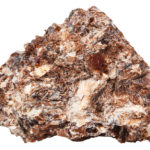By David Blyweiss, M.D.
What would you give for an unlimited supply of energy that starts in your cells and keeps you powered up all day, every day? For most people, it would be a priceless gift. But, surprisingly, it’s one that anyone can have. The secret is a special form of Coenzyme Q10 called ubiquinol.
While Co-Q10 is considered the Energizer Bunny of nutrients, the body may have trouble absorbing it. Enter ubiquinol—a much more bioavailable form of Co-Q10 that is starting to garner attention amongst researchers and nutritionists. This means that it is a more effective way to support energy production.
CoQ10 helps cells generate energy in two ways. First, it acts as a catalyst that allows the mitochondria to produce adenosine triposphate (ATP), the molecule that powers the cell. Second, as an antioxidant CoQ10 protects the mitochondria against free radicals, which are unstable byproducts of energy generation. In addition, CoQ10 helps the waste management units in cells, technically known as lysosomes, clean up debris. This allows the cells to function more effectively.
While every cell requires energy to operate properly, the cells in the heart require enormous amounts of power to keep it beating. Not surprisingly, cardiac cells contain large amounts of CoQ10. This nutrient helps keep blood from clotting abnormally and makes it easier for heart cells to get the blood flow they need. CoQ10 has also shown ability to counteract some of the harmful effects of metabolic syndrome, a condition that can lead to heart disease.
This critical nutrient also helps protect LDL cholesterol from oxidative damage, an important step in preventing atherosclerosis. Recent studies show that its reduced, bioavailable form—ubiquinol—can help improve the heart’s ability to pump blood in people with congestive heart failure, a condition in which cardiac pumping power is impaired. And supplementing with CoQ10 is essential if you take a statin, since these drugs can deplete the body’s stores of the nutrient.
But researchers are discovering that CoQ10’s benefits extend well beyond heart health. People with mitochondrial disorders have benefited from CoQ10 supplementation. CoQ10 may improve function and reduce fatigue among those suffering from neuromuscular disorders. It even shows promise as an early-stage treatment for Parkinson’s disease. Lab studies indicate that it may also be able to counteract the abnormal brain deposits seen in Alzheimer’s disease. Other studies have shown possible roles for CoQ10 in treating fibromyalgia and male infertility.
The World's Quickest Solution for Ending Prostate and Urinary Misery
This has recently been revealed to be one of the only real breakthroughs in prostate health.
The seeds of a strange fruit (sometimes called "Chinese Apples") hold powerful phytonutrients that are a revolution in prostate health.
In fact, UCLA and Veterans Administration research have now proved this to be true.
Not only that, but it may be the worlds quickest solution for ending prostate misery.
Simply stated, these phytonutrients represent a huge step beyond beta sitosterol, saw palmetto, and other phytosterols alone.
Simply click HERE if you want to have fast prostate relief...restful, uninterrupted sleep...no more constant "urges to go"...enhanced virility...and optimal prostate support for life.
But healthy people can benefit from CoQ10, too. Sedentary men who took the supplement showed improved exercise performance. Plus, CoQ10 helps skin cells repair wounds more quickly and may help protect against wrinkling. In fact, it’s not uncommon to find CoQ10 as an active ingredient in a growing number of anti-aging skin creams.
But, as I mentioned earlier, you can’t just pop a CoQ10 supplement and expect to get these results. The body often has to modify this nutrient before it can effectively use it. This involves a chemical process called reduction that turns it into ubiquinol. Not only does the body’s ability to produce CoQ10 itself decline with age but its ability to reduce CoQ10 to ubiquinol declines, too. As a result, cellular energy generation is slowed and free-radical damage may occur. Fortunately, you can now skip this conversion step by taking 100 mg. of supplemental ubiquinol directly every day. This ensures the full benefit CoQ10 has to offer. Plus, unlike CoQ10 supplements, you’ll actually feel the difference. Not only will your cells experience a boost in energy—so will you!
References:
Gökbel H. The effects of coenzyme Q10 supplementation on performance during repeated bouts of supramaximal exercise in sedentary men. Journal of Strength and Conditioning Research. 2010;24:97-102.
Littarru GP. Clinical aspects of coenzyme Q10: an update. Nutrition. 2010;26:250-254.
Mancuso M. Coenzyme Q10 in neuromuscular and neurodegenerative disorders. Current Drug Targets. 2010;11:111-121






